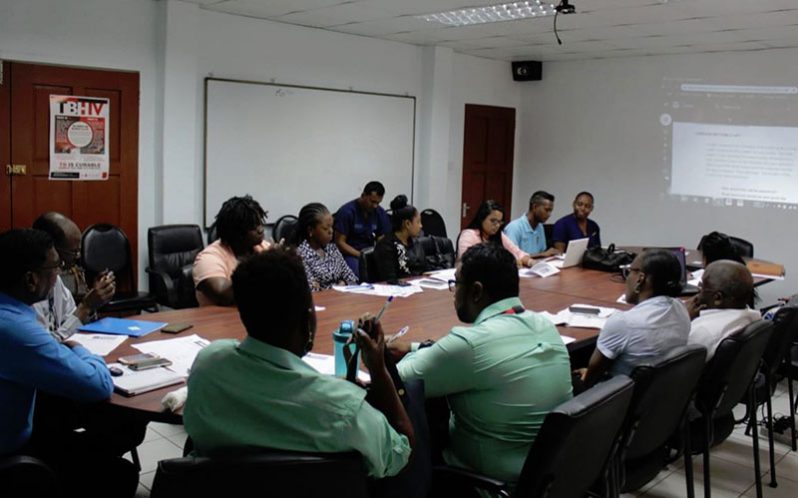LOCAL stakeholders have tested out their skills in communicating during acute chemical events, with the aim of strengthening local capacity to respond to these types of incidents.
On Tuesday, participants from the Ministry of Public Health, medical professionals, the Civil Defence Commission (CDC) and Environmental Protection Agency (EPA) engaged in a simulation exercise titled “Exercise Neptune’s Gift”.
The aim of the exercise was to test communication channels and capabilities surrounding the management of acute chemical events in Guyana.
The simulation exercise took place at the Health Emergency Operation Centre (HEOC) of the Georgetown Public Hospital Corporation (GPHC), where a handful of participants were given acute chemical mishap scenarios and were trained in understanding the best practices needed to be employed.
“Unlike the real situation, we have a chance to plan for this,” Chief Medical Officer, Dr Shamdeo Persaud said before the commencement of the simulation.

He noted that the exercise was in observance of the International Health Regulations (IHR). These regulations are part of an international legal instrument that include measures for preventing the transnational spread of infectious diseases.
“An event will occur that will require [the public health system] to be alerted and for our national disaster mechanism to spin into operation so that necessary precautionary measures and responses are in effect,” Dr Persaud said as he noted the importance of this exercise.
In the local context, he related that health workers and partners in other agencies would respond to biological events, such as the outbreak of diseases and natural disasters that can pose a threat to life.
On the other hand, according to him, chemical events are “quite diverse” and can range from contamination or spillage to more malicious practices of use of chemicals as weapons.
He noted that a majority of the chemical events that have occurred in Guyana have been in relation to the environment, but noted that precautions must be taken since these may not always be acute, but may have long-term effects.
The exercise is being funded by Public Health England and executed through the Pan American Health Organisation (PAHO) Emergency Operating Centre in Washington.
Already in Guyana’s National Disaster Risk Reduction plan, there are defined response mechanisms in place to mobilise local systems and personnel in the event of a mishap. Dr Persaud, however, noted that the aim of the simulation exercise is to focus specifically on the communication channels that exist and how these should be best used.
Director-General (ag) of the Civil Defence Commission (CDC), Lieutenant Colonel Kester Craig said when disasters occur, there is little time to refer to plans. As such, the training is important in understanding what happens and what communication channels exist.
He also shared that the CDC will be supporting the emergency operating centre, in terms of providing training to the people there.




.png)









